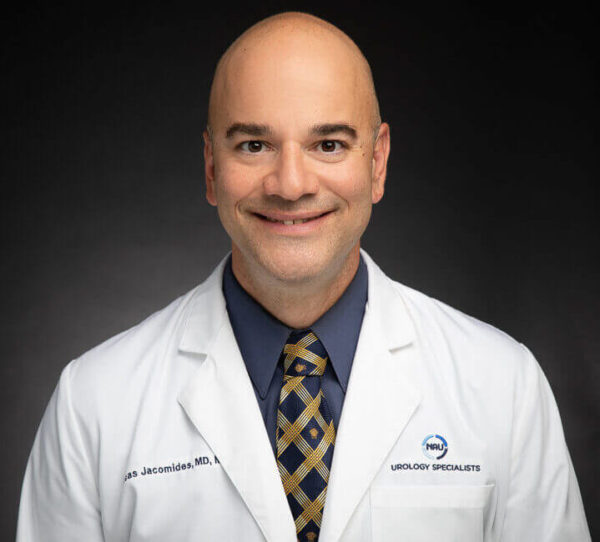
Causes and treatment of interstitial cystitis
Interstitial cystitis (IC) or painful bladder syndrome (PBS) is a condition that results in discomfort or pain in the bladder area not associated with urinary tract infection or other identifiable cause. The symptoms can be different from person to person but can range from mild discomfort or pressure or urinary urgency to intense pain in the bladder and pelvic area that can persist for months at a time. Symptoms can also include urinary frequency, nighttime voiding, or pain during intercourse. Classically, the pain improves when the bladder is empty and worsens if the bladder is filling but some patients may experience a variation of these symptoms.
Causes of interstitial cystitis
Patients with IC will often be mistreated as having recurrent urinary tract infections or given medications simply for pain without the appropriate evaluation. It is important that a high threshold of suspicion be maintained with patients that present with the symptoms of recurrent urinary tract infections without any evidence of bacteria.
Although it is unknown what causes interstitial cystitis, it is generally felt that the bladder wall is inflamed. Mast cells, called immune cells, are often seen on bladder biopsy. There can be bleeding from the bladder wall which can show up as small amounts of blood on the urinalysis. Although IC can occur in both men and women, women are affected at an overwhelmingly larger rate. Although a bacterial etiology for IC has been proposed, no causative bacteria have been definitively identified in large number of patients. Nonetheless, in our practice, we will frequently treat women who present with apparent IC with a three-week course of tetracycline to treat for atypical bacteria that may be contributing to the symptoms without showing up in the culture.
Interstitial cystitis is often diagnosed with history alone. Oftentimes, patients only present with pain in the bladder area, urinary frequency and urgency, and no evidence of bacteria in the urine. Some patients will present with intermittent symptoms that can persist for several days to weeks. Patients often will have other inflammatory conditions, such as lupus, rheumatoid arthritis or irritable bowel syndrome.
Diagnosis includes a few steps
The diagnosis of IC includes history and physical exam. A physical exam can include a cystoscopy done under anesthesia where the bladder is distended to a large volume and then a biopsy is done of the bladder wall. In all cases, a urinalysis and urine culture may need to be performed and in some cases. Men with IC like symptoms will have their prostate secretions cultured.
Our Austin urologist treatment IC
There is no cure for IC and studies are ongoing to look for additional forms of treatment. In our practice, we use medications as a second line and often try to adjust symptoms with lifestyle changes. Avoidance of certain medications such as ibuprofen and dietary changes to avoid foods that are high in acid are the first line of treatment for our patients with IC. When the symptoms disappear, it is important to note that they can return, especially at times of psychological or physical stress.
Other treatments may include distending the bladder, inserting certain type of agents into the bladder to reduce inflammation, or instilling a strong solvent called DMSO into the bladder, which is an FDA approved treatment for IC. Medications orally taken include Elmiron, which is the first oral drug approved for interstitial cystitis and has been around for nearly 15 years. The medications must be taken for six months to a year before their effect can be accurately assessed. This drug may work by helping repair the inner lining of the bladder. Some patients may have side effects including GI upset and hair loss which may limit its use.
Some patients may benefit from a trial of Elavil which is a tricyclic antidepressant that can help reduce pain and has been used in a number of pelvic pain syndromes. Some patients may benefit from electrical nerve stimulation and almost all of our patients with suspected IC will undergo advanced bladder training with pelvic floor physical therapy.
Our Austin Urologists do not overlook the sexual side effects of interstitial cystitis
The sexual side effects of interstitial cystitis are often overlooked by many physicians but can be just as lifestyle limiting as the bladder pain itself. It is crucial that the sexual symptoms be inquired about and that treatment is instituted to help reduce the effect they can have on relationships.
Patients that are living with IC for a long period of time can become addicted to narcotics if they are not prescribed in a well monitored manner. For this reason, we will often not give narcotics to interstitial cystitis patients. We often enlist the assistance of a pain management doctor who can try to limit the exposure to narcotics and help us focus more on the actual physical damage to the bladder and managing urinary symptoms.
Contact us for diagnosis and treatment of interstitial cystitis.














